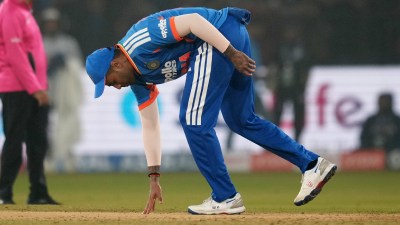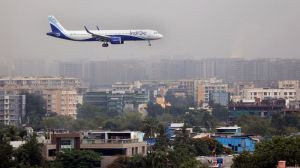Report on strategy against China offensive
We also need to earmark locations from which the insurgency will be operationally and logistically supported.
If China launches a major offensive on India,Delhi should look to leverage its asymmetric capabilities to convince the Chinese to back down,a report prepared by a group of independent experts said here on Tuesday. This should include triggering an effective insurgency in the Chinese-occupied areas,interdicting Chinas logistics and operational infrastructure and finding locations from where the insurgency will be supported.
The report a non-governmental initiative was released in the presence of National Security Advisor Shivshankar Menon and his predecessors,West Bengal Governor M K Narayanan,and NSA during BJP-led NDA regime Brajesh Mishra.
Chinese Foreign Minister Yang Jiechi is visiting India on Wednesday and will meet External Affairs Minister S M Krishna as part of preparations for the BRICS summit on March 28 and 29.
We must be able immediately to trigger an effective insurgency in the areas occupied by Chinese forces…we need to induct locals into paramilitary and police units,and train them to switch to the guerrilla mode. We must acquire intelligence of all logistic and supply routes from Tibet into occupied areas, said the report,titled Non Alignment 2.0 a foreign and strategic policy for India in the 21st century.
We must develop the capability to interdict Chinas logistics and operational infrastructure in Tibet. We also need to earmark locations from which the insurgency will be operationally and logistically supported. All of these,it bears emphasising,will require preparation well in advance. The fork in the road we need to choose is the politico-military strategy of quid pro quo and asymmetry as a means to defend our borders, said the report.
The report has been prepared by a group comprising Shyam Saran (former special envoy to Prime Minister Manmohan Singh),Nandan Nilekani (chairman of Unique Identity Development Authority of India),Lt General (retired) Prakash Menon (military advisor to the National Security Council Secretariat),Sunil Khilnani (Professor of History at Kings College,Londons India institute),Pratap Bhanu Mehta (President,Centre for Policy Research),Rajiv Kumar (FICCI secretary general),Srinath Raghavan (senior fellow at CPR) and Siddharth Vardarajan (Editor,The Hindu).
- 01
- 02
- 03
- 04
- 05






























